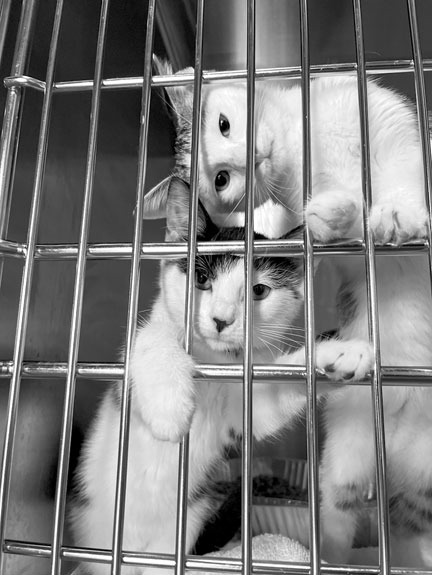Independence Day festivities may entertain with bright lights, but its fireworks also lead to more missing dogs than any other day of the year, according to Elgin’s new resource for shelter pets.
Austin Pets Alive! and Elgin’s Regional Lifesaving Transportation Hub have some preparations to consider before Fourth of July celebrations kick off to better comfort pets and reunite families with their furry friends.
“Fireworks can be scary for dogs and cats,” Luis Sanchez, APA! director, said. “Because fireworks are so scary, your chances of finding a lost pet will be higher during the holiday.”
Before the fireworks begin to bang, Sanchez recommends taking pets out for bathroom breaks, putting on a named collar tag, ensuring medications are filled and updating microchip information.
Chip details can be edited at my24pet.com.
Running white noise like music or the television can also help reduce stress during the festivities, according to APA!. The team also suggests keeping pets inside or on a leash.
In the unfortunate instance where a pet does stray from home, neighbors can be a big help, according to Sanchez.
“Most dogs don’t wander far from home,” Sanchez added. “Alert your neighbors and ask if they have seen anything. Go on regular walks around the area.”
According to a study published by Frontiers in Veterinary Science, 70% of lost dogs are found less than a mile from their homes, and 42% are less than 400 feet.
Pet owners can also check lost and found pages on local shelter websites and social media.
“Post clear photos and details about your pet on Nextdoor,” said Sanchez.
If an unfamiliar pet is found, APA! recommends walking the animal around the area in which it was found to see if anyone is looking for it.
If no owners are found, check the chip at a vet, local fire station or pet supply store, file a found pet report with police and post photographs on social media.
Beyond the holiday, Elgin’s new transportation hub allows the nonprofit to increase the number of lives saved from under-resourced rural Texas shelters by connecting them to other rescues with space and adoption demand around the country.
The hub at 929 Old Mc-Dade Road will serve as a crucial layover stop for an additional 8,000 pets over the next three years who have been rescued from euthanasia, according to Sanchez.

Elgin’s Regional Lifesaving Transportation Hub has housing for over 30 cats along with its 45 dog kennels. Photo courtesy Austin Pets Alive!
.png)





